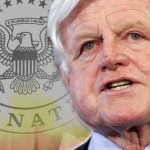Contributed by Jocelyn Breeland
Fairfax, VA
Warm-up Question: Do any of the things you own make you sad? Do any of them consume a lot of your time?
 Michael Moore’s latest documentary, “Capitalism: A Love Story,” is a continuation of the award-winning filmmaker’s attack on the system that defines the U.S. economy. In it, he looks at the winners and losers in the latest chapter of our economic drama — the financial collapse of late 2008.
Michael Moore’s latest documentary, “Capitalism: A Love Story,” is a continuation of the award-winning filmmaker’s attack on the system that defines the U.S. economy. In it, he looks at the winners and losers in the latest chapter of our economic drama — the financial collapse of late 2008.
Those familiar with Moore’s previous films will recognize his theatrical attempts to show how the wealthy ignore the ordinary people they exploit. In “Roger & Me,” the documentary that made Moore famous, he pursued GM CEO Roger B. Smith, while showing how Smith’s decision to move manufacturing jobs to Mexico devastated GM workers in Moore’s hometown of Flint, Michigan. In “Bowling for Columbine,” Moore contrasted people who promote and enjoy firearms with victims of gun violence. “Fahrenheit 911,” a look at the events following the September 11 terrorist attacks, frames the decision to go to war in Iraq in terms of the petroleum interests of President Bush’s family and Saudi Arabian royals. “Sicko” looked at the winners and losers in the American health care system.
Together, Moore’s films have grossed nearly $200 million and his combination of humor and shocking contrasts have brought a new audience to the documentary genre. For example, one scene in “Capitalism” has Moore setting up police crime scene tape on Wall Street at the site of a “crime” against American taxpayers. At another point, the film asks “When did Jesus become a capitalist?”
Despite his success, there are many who criticize Moore’s politics and his methods. He has agreed with the criticism that “Capitalism: A Love Story” oversimplifies by labeling capitalism evil. However, he said, “…if I tell you that there’s a home foreclosed on every seven and a half seconds, you need to know that that’s absolutely true.”
Michael Moore is a man who enjoys stirring up controversy, and he would appear to have succeeded once again.
(Note: You’ll find good background material for this Faith Lens discussion and lesson in the ELCA Statement on “Economic Life: Sufficient, Sustainable Livelihood for All“.)
Discussion Questions
(Note: Leaders should be prepared to discuss capitalism in general terms. However, for the purposes of this discussion, student perceptions of the role of businesses, workers, and markets are as valid as any.)
- Have you seen any of Michael Moore’s films? Would you like to? Why, or why not?
- What’s capitalism?
- Looking at Moore’s subjects — jobs sent overseas, the Iraq war, health care, and the financial meltdown — is capitalism itself really the problem or cause? What else may contribute to these problems?
- Given that Moore’s films have made him a very wealthy man, is his criticism of capitalism hypocritical? What would you do in his shoes?
- Can capitalists be faithful, generous, compassionate Christians?
Scripture Texts (NRSV) for Sunday, October 11, 2009.
(Text links are to oremus Bible Browser. Oremus Bible Browser is not affiliated with or supported by the Evangelical Lutheran Church in America. You can find the calendar of readings for Year B at Lectionary Readings.)
For lectionary humor and insight, check the weekly comic Agnus Day.
Gospel Reflection
Do we need to be poor to be saved? Does God have something against the wealthy? Sometimes, it seems that way, and today’s Gospel is one of those times.
A man asks Jesus what he must do to be saved. Jesus’ first answer is simple enough: obey the commandments. The man says he’s done exactly that his whole life, but he believes there must be something more. The next step, Jesus tells him, is to sell all his possessions and give the proceeds to the poor. The man goes away, despondent. It’s as if he realizes the price of salvation is too high.
The disciples ask a question that resonates today. If it’s that hard, how can any of us be saved? The answer in this case, as we see time and again throughout the New Testament, is that we cannot earn our own salvation. If we must deserve to be saved, then we are all doomed.
The truth is that Jesus, through his sacrifice on the cross and resurrection, has earned salvation for all of us — it’s a gift. And because God has provided for all our needs, we don’t need to rely on or obsess about material possessions for our safety, security, consolation, acceptance, or identity.
Instead, God wants us to separate ourselves from the things and stuff in life that distract us from Jesus, the gift of salvation, and living as humble servants of others. From a current world point of view, this can be a very big sacrifice. It can mean standing against the flow of pop culture, persuasive marketing, and social pressures. However, Jesus assures us that all who make the sacrifices are following God’s desires for humanity and participating in the vision of creation that God holds up for us. Jesus reminds us that living simply and being generous with others isn’t for the sake of getting something really great in return; it’s about trusting in the gift of new life we have received and living as thankful people.
Discussion Questions
(Note: Don’t forget that there are probably a variety of family and economic contexts within the group of young people participating. Some may be very sensitive and painful. The point of the discussion is not to neatly organize everything into a good or bad category, but to reflect on the life that we have been set free to live in the gospel and the challenges it may pose.)
- Is it possible to be wealthy and be saved?
- Consider the ways you might acquire wealth. Is it possible to do so while obeying God’s will and being faithful in living a life of humble compassionate justice as Jesus did?
- In what ways does the gospel message and Jesus’ example ask us to change how we go about everyday life and business?
- Often in disasters (earthquakes, fires, floods) people lose all their possessions. Can this be good news for their faith?
- Do rich and poor people view their faith differently?
- How does Jesus’ view of wealth affect your career and lifestyle choices?
Activity Suggestion
Design an economic system that is consistent with your faith. You may choose to simply make modifications to our existing system, for example, to eliminate homelessness, ensure universal access to medical care, or find employment for everyone (if you believe these are imperatives of your faith). Or, you may choose to create a whole new system from scratch.
- Will your system work only in the United States?
- How will you convince others to join your new system?
- What are the benefits of it for communities? Individuals? Families?
- What might be the weak spots in it that you’ll have to work on?
- How does it reflect your faith and beliefs?
Write a brief description of your system and post it as a comment on the Faith Lens blog. Read and comment on the responses of other groups.
Closing Prayer
Heavenly Father, thank you for providing for our needs and sometimes our “wants,” the stuff that we enjoy but could live without. Help us to remember that the only thing we cannot live without is your gracious love and endless mercy. Everything we have is a gift from you, and we work every day to share that gift with others. Teach us to be untiring in our love for each other and fearless in our generosity with others. We pray for the wisdom and strength to follow Christ’s example. In Jesus’ name, we pray. Amen.

